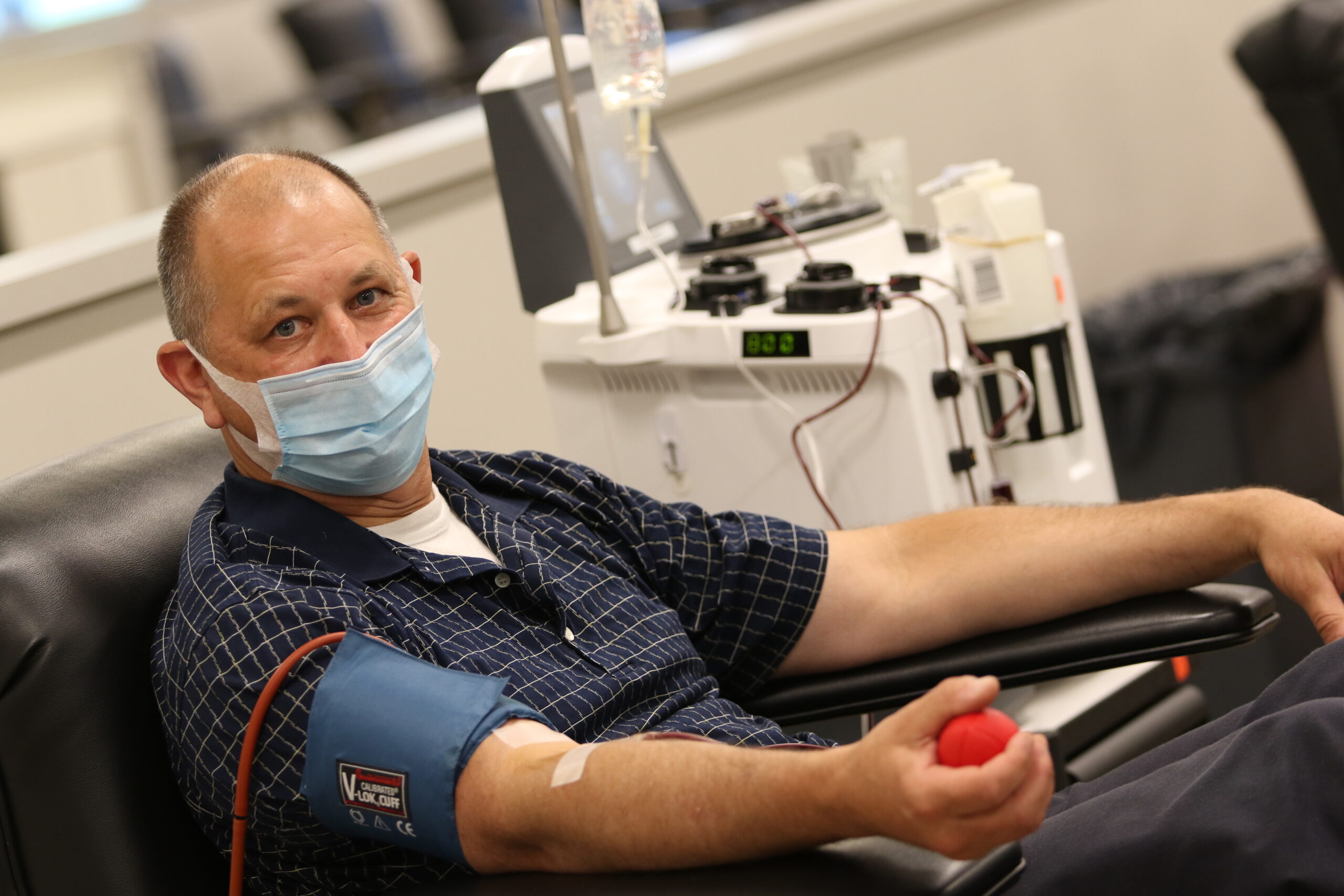By Judith Fales
We all know that we can donate blood. But, did you know that some of us can also donate plasma? Plasma is the liquid portion of our blood that transports red cells that carry oxygen, white cells that fight disease, and platelets that help stop bleeding in the body. If you take these cells out, you are left with a liquid that is mostly water with small proteins and antibodies vital to life.
Since plasma cannot be produced artificially, it can only be obtained through the generous donation of healthy individuals for others in need. The process of obtaining plasma is called plasmapheresis, which separates plasma from blood cells and platelets, and then returns them to the donor. Because plasma is replenished more quickly than blood cells, individuals can donate up to twice weekly.

Stephanie Ulm, who suffered a miscarriage after her second child, has four children. She has Rh-negative blood, and her husband has Rh-positive blood, which can cause their children to be Rh-positive. In these instances, the mother can develop antibodies that attack the unborn child’s blood cells, causing brain or other damage to the fetus, or a miscarriage. Since it takes time to develop antibodies, these harmful effects don’t usually occur in a first Rh-positive pregnancy, but may cause harm in future pregnancies.
To prevent this from happening, an expectant Rh-negative mother can receive RhoGAM, a medication made from plasma that contains small amounts of Rh-positive proteins. RhoGAM usually stops the mother’s blood from making antibodies that attack Rh-positive blood cells and from having an Rh allergy. The mother receives a RhoGAM injection at about 28 weeks of pregnancy, and then another when her blood mixes with the infant’s blood, for example during labor.
Stephanie is thrilled that she has been able to donate plasma twice a week for the past seven years, and says, “It only takes one hour, and the nurses are awesome and really care about you.” Donating has become a family affair for Stephanie. Her older daughter who is also Rh-negative donates, as do her two sons. Proud of her children, Stephanie says she doesn’t know of other families who are donating together. She says, “I get paid, I give back to my community, and I save babies. I feel blessed that I’m able to do this.”
KEDPLASMA is a Kedrion Biopharma international company that produces and distributes plasma-derived medicinal products for processing into plasma-based therapies. If you are a man or woman who is Rh-negative, you may be able to donate your plasma and receive compensation for your time and effort. Those who qualify must be in good health, between the ages of 18 and 65, and reside within 90 miles of KEDPLASMA Somerset Labs. Females who want to donate to save babies must be sterile or postmenopausal. Also, a KEDPLASMA physician must determine if any prescriptions you currently take will affect your eligibility to donate.
KEDPLASMA Somerset Labs, a subsidiary of Kedplasma USA, is located at 15 Limestone Drive, Williamsville 14221. Email somerset@kedplasmausa.com to learn more, or call 716-631-1281 and ask for a telephone interview to help determine if you qualify for an in-person interview.










